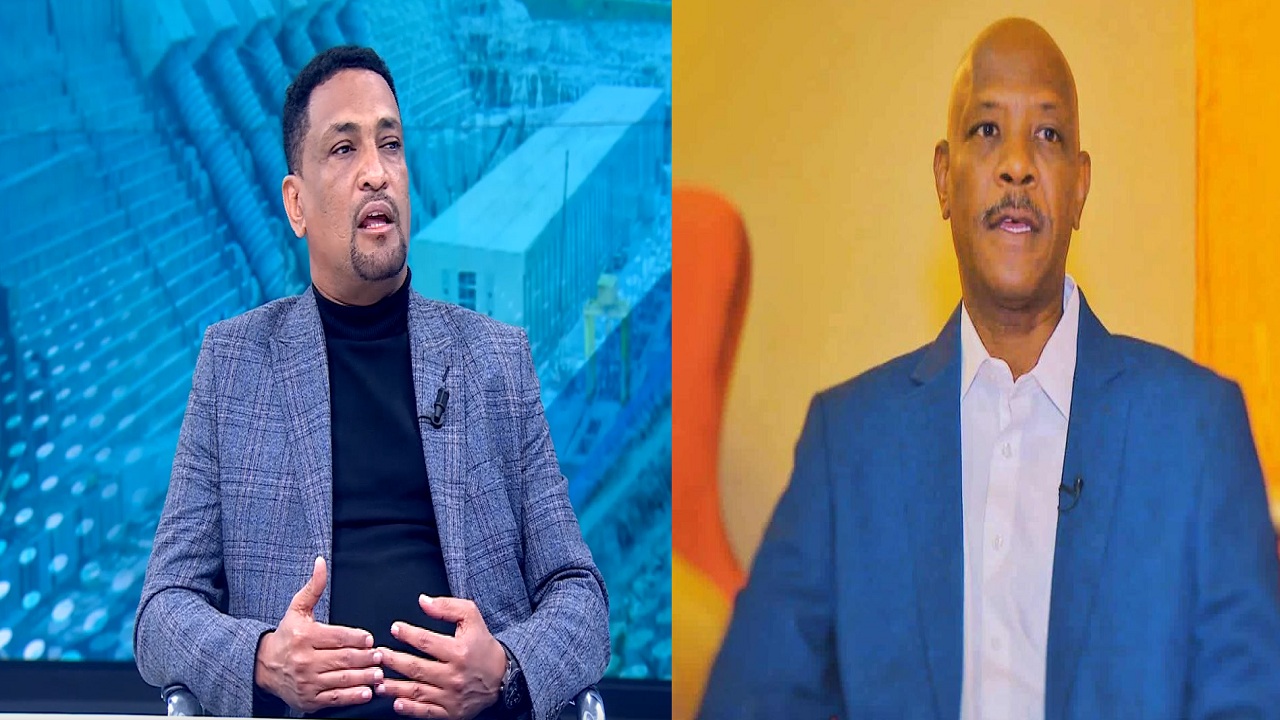Sudanese Journalists Describe GERD Catalyst for Regional Dev’t, Not Threaten Downstream Nations - ENA English
Sudanese Journalists Describe GERD Catalyst for Regional Dev’t, Not Threaten Downstream Nations

Addis Ababa, September 20, 2025 (ENA) -- Sudanese journalists underscored the significance of the Grand Ethiopian Renaissance Dam (GERD) as a pivotal development initiative for the African continent, emphasizing its potential to expedite development across the region.
Ethiopia has recently inaugurated the largest hydropower dam in Africa, which has a capacity of generating 5,150 megawatts of electric power, making it among the 10 biggest hydropower dams in the world.
The dam is expected to supply electricity to millions of Ethiopians, in addition to its substantial role in enhancing industrial growth within the nation, while also providing power to neighboring countries such as Sudan.
In an exclusive interview with the Ethiopian News Agency, Sudanese journalists Abu Bakr Al-Samani and Mohamed Hamed Jumaa refuted the claims being reiterated by Egypt and some elements in Sudan attempting to portray the Grand Ethiopian Renaissance Dam as an existential threat to downstream countries.
They emphasized that GERD is a strategic continental project, noting that it poses no threat to downstream countries; instead, it offers considerable development prospects to the entire region.
The dam will boost agriculture in Sudan by allowing farmers to exploit the several farming seasons, along with the nation reaping the benefits of the electricity generated from the dam, the journalists noted.
The electricity that would be generated from GERD will light up the countries across the region, which is key to ensuring shared development and expediting integration, they added.
Abu Bakr Al-Samani, the Moroccan Radio Mediterranean correspondent in Ethiopia, pointed out that the concerns being expressed by certain Egyptian and Sudanese media regarding a stoppage in water flow lack scientific backing. He clarified that the filling phase has demonstrated the ongoing natural flow of water, with no adverse effects on downstream nations thus far.
The Moroccan correspondent further stressed that such large-scale projects extend beyond local advantages; they serve as a blueprint for both continental and global progress, urging a rational perspective on them, devoid of media sensationalism by some elements in the downstream.
He stressed the need for downstream countries to strategically engage with the Ethiopian government to ensure affordable access to electricity.
“GERD is now a reality, and as downstream countries, we have moved beyond the stage of speculation, as it is now a fact. Therefore, the key is to work strategically with the Ethiopian government and its officials to secure access to electricity at a very reasonable price, enabling us to explore opportunities for mutually beneficial agreements and partnerships.”
Mohamed Hamed Jumaa, a journalist specializing in African affairs and former editor-in-chief and founder of Al-Sahafa newspaper in Sudan, has also echoed Al-Samani’s sentiment in terms of GERD’s benefits to Sudan.
Jumaa pointed out that the benefits are not limited to agriculture and electricity alone, but also include the profound economic and social changes taking place in the region, especially along the border.
According to Jumaa, a stable electricity supply can lay the foundation for an industrial and commercial renaissance that will boost the local economy. He explained the enormous opportunities that Sudan will be able to secure from Ethiopia’s hydropower dam.
“The economies of the neighboring border states of Blue Nile and Kassala, as well as Gadarif and the Red Sea State, will undergo a substantial transformation with the establishment of a reliable and continuous electricity supply. This positive impact will extend throughout eastern Sudan, fostering economic growth and boosting commercial activities. Consequently, the local communities in eastern Sudan would experience significant improvements and advancements as a result of this development.”
He believes that strengthening the economic partnership between Sudan and Ethiopia reflects political and diplomatic positions that protect the interests of both countries.
Regarding the positions of some Sudanese officials, Jumaa recalled Khartoum’s recognition of Ethiopia's right to build the dam, in addition to some technical issues such as operation and information exchange. He stressed the need to discuss these issues calmly and realistically, avoiding negative assumptions that are not supported by reality.
The Sudanese journalist expressed concern regarding the media discussions currently observed among certain media outlets in Arab countries, which are driven by emotions rather than grounded in engineering or scientific principles.
He pointed out that most fears of the dam's collapse or damage are not based on specific references or sound studies. Juma pointed out that turning the project into a platform for conflict would undermine the level of shared development, believing it would be more effective to serve as a model for regional integration.
The journalists touched on the experience of the High Dam in Egypt, which led to the destruction of civilization in the Halfa region, while Sudan did not benefit from the generated electricity. This reinforces the importance of Sudan taking advantage of the opportunities offered by the Renaissance Dam at this time.
They finally stated that Sudan needs an agricultural and economic renaissance based on the optimal use of its water resources, stressing the need for dialogue and cooperation with Ethiopia, while maintaining balance in resolving issues raised by other parties, is the best way to achieve the interests of all countries.